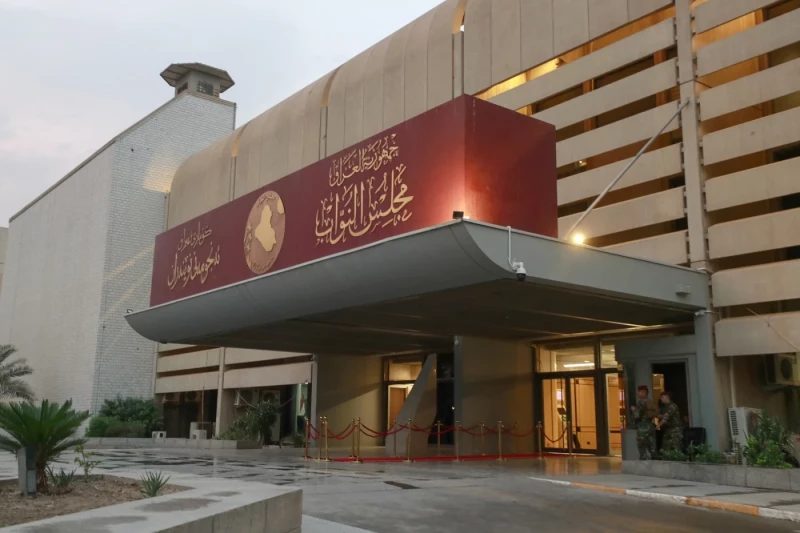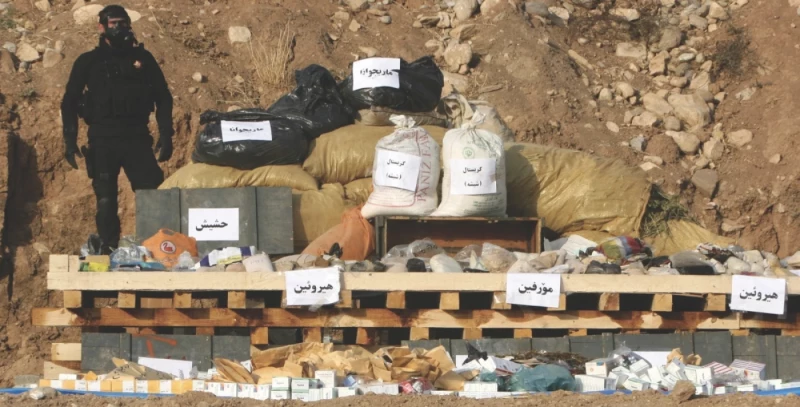ERBIL, Kurdistan Region of Iraq – Nine out of the Iraqi Federal Supreme Court’s 13 permanent and reserve members have submitted their resignations, a source from the court told The New Region on Thursday, citing disputes with the Supreme Judicial Council.
Six of the Iraqi top court's permanent members and three reserves have resigned from their posts, the source said, noting: “There are two main reasons for these resignations.”
“The first reason is the dispute between the Supreme Judicial Council and the federal court as a stance against repeated appeals and rejections of the federal court’s rulings by the Federal Court of Cassation,” the source clarified.
In a letter to the Iraqi parliament speaker, dated June 17, Federal Supreme Court head Jassim al-Umairi stressed the need to respect the court's constitutional status as an independent body, adding that objecting to the top court's rulings is not within the jurisdiction of the Court of Cassation.
"We therefore call on all authorities to hold a meeting in the presence of all members of the State Administration Coalition and experts in the constitution and law to discuss this issue," read the letter.
The source from the court added that “the second reason is the Khor Abdullah case,”
The Khor Abdullah deal delineates the control of the Khor Abdullah waterway in the south of Iraq, drawing a line down the river’s center to divide maritime rights between Iraq and Kuwait.
Legal expert Ali al-Tamimi told The New Region in April that the Supreme Court had previously annulled the law ratifying the Khor Abudllah agreement due to the “unconstitutionality of the parliament's vote,” saying the process was held without the two-thirds majority needed to vote on international agreements.
Kuwait, along with the Gulf Cooperation Council (GCC) states, expressed their concern at the Iraqi court’s blocking of the agreement.
Both Iraqi President Abdul Latif Rashid and Prime Minister Mohammed Shia’ al-Sudani appealed the decision, urging the court to reverse course.
“The resignations are related to the pressure exerted on the court relating to the Khor Abdullah case,” MP Raid al-Maliki told The New Region Thursday.
Critics of the agreement view it as a sell-out of Iraqi sovereignty, dismissing Kuwait’s right to control any of the river, whose status has remained in dispute since Iraq’s Baath-era invasion of its smaller neighbor.
The Federal Supreme Court was set to rule on the Khor Abdullah case on June 22, but the hearing was brought forward to Thursday, before being postponed to June 25.
The resignations also leave the case of the Kurdistan Region’s civil servant salaries hanging in the balance.
The Iraqi top court was set to rule on a lawsuit by civil servants from the Kurdistan Region on Thursday, demanding uninterrupted funding of their salaries on their specified dates as per a previous ruling of the court.
In late May, the Iraqi finance ministry informed the Kurdistan Regional Government (KRG) that Baghdad is “unable to continue funding the Region,” arguing that the Region has already exceeded its 12.67 percent share of the annual budget.
A source from the Federal Supreme Court told The New Region that the resignations had nothing to do with the Kurdistan Region’s civil servant salaries’ case, noting that the majority of the court’s members had “positive” opinions regarding the sending of salaries.
Over one million civil servants in the Kurdistan Region rely on monthly salaries for their livelihoods, but the Iraqi finance ministry’s decision would deprive them of their financial entitlements for eight months.
The federal court was unable to hold a session to rule on the issue when it was first submitted in early June, as five out of its permanent nine members were away for Hajj pilgrimage. The court has four reserve judges, but the presence of at least nine is required to meet a quorum.
What happens to the Federal Supreme Court?
Legal and constitutional expert Tamimi explained to The New Region about what will happen to the Federal Supreme Court after the resignations.
“A judge, like any other employee, can resign for many reasons, even personal ones. The resignation of judges does not stop the work of the court," Tamini said, explaining that "the court was formed under Law 30 of 2005 and its internal rules from 2022.
"It includes nine judges, including the head. They are chosen by the Supreme Judicial Council in consultation with the Kurdistan Region.
"Two judges come from the region, and there are three backup judges.”
He went on to say that if any judge resigns, new ones are chosen the same way, by the Supreme Judicial Council. So the court still exists and works as a legal body.
"Now it is time to pass a law for the Federal Supreme Court, as required by Article 92 of the constitution. Parliament must vote for it with a two-thirds majority. After replacing the resigned judges, the president issues a decree to appoint them,” he explained.
Tamimi said the court cannot hold any sessions or make any decisions right now because of the resignations. It must wait for new judges to be named before it can return to its normal work.


 Facebook
Facebook
 LinkedIn
LinkedIn
 Telegram
Telegram
 X
X



